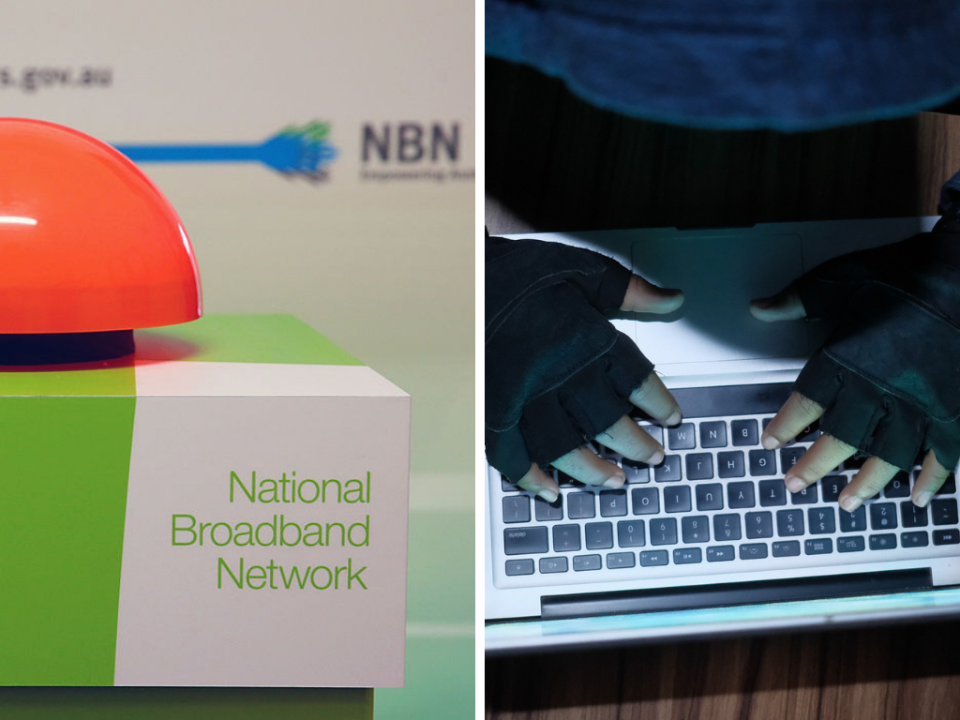Falling hard: Aussies are losing $110,000 per month to this scam alone

There’s one scam that Australians are falling hard for – and every month it’s seeing more than $100,000 of our hard-earned money go straight into the pockets of online cyber criminals.
Last year saw customers lose an average of $38,500 per month to NBN scams, according to ACCC.
But in the months between January and May in 2019 alone, that figure has risen to a whopping $110,000 per month, representing a massive 286 per cent uptick.
Who’s most at risk?
Older Australians.
According to ACCC acting chair Delia Rickard, Aussies aged over 65 are particularly vulnerable, losing more than $330,000 this year and accounting for more than 60 per cent of the current losses.
It’s a common trick for scammers to pose as trusted brands, such as big banks or telcos, to swindle personal or banking information out of people.
Related story: NAB and Westpac customers beware: These email scams look like the real deal
Related story: ANZ customers get scam email warning of a scam
Related story: SCAM: CommBank customers targeted by $500 cardless cash hoax
Related story: The 10 biggest scams of 2019 so far
“Scammers are increasingly using trusted brands like ‘NBN’ to trick unsuspecting consumers into parting with their money or personal information,” Rickard said.
What do the NBN scams look like?
There is more than one ‘strain’ of the NBN scams that people are falling for, and they’re constantly evolving.
According to the ACCC, here are four examples of common NBN scams:
Scammers call a victim, pretending to be from NBN Co or an internet provider, claiming there is a problem with their phone or internet connection that requires remote access to fix. From there, the scammer can then install malware, or steal valuable personal information like banking details.
Scammers pretend to be from the NBN and try to sell NBN services or equipment, often at a discount, over victims over the phone.
Scammers might call or even visit people in their homes to get them to sign them up to the NBN, cut them a better deal, or test the speed of their connection. Personal details, such as their name, address, date of birth, or Medicare number might be asked for, or they may ask for payment through gift cards.
Scammers may call victims during a blackout to offer the ability to stay online during a blackout for an extra fee.
How to safeguard yourself from these NBN scams
If you feel unsure about someone who has called you claiming work ‘for the NBN’ and tried to sell you an internet or phone service, ask for their details and hang up.
“Call your service provider to check if they’re legitimate,” Rickard said.
“Do a Google search or check the phone book to get your service provider’s number; don’t use contact details provided by the sales person.”
On top of that, don’t ever give an unsolicited caller remote access to your computer.
And unless you have been the one to initiate contact with a service provider, don’t give out your personal, banking, or online account details to anyone you don’t know, whether in person or over the phone.
“It’s also important to know that NBN does not make automated calls to tell you that you will be disconnected,” the ACCC acting chair added. “If you get a call like this just hang up.”
If you suspect a scammer has access to your personal information like your bank account details, get in touch with your financial institution immediately.
You can report scams through the Scamwatch’s Report a scam page.
Make your money work with Yahoo Finance’s daily newsletter. Sign uphere and stay on top of the latest money, news and tech news.

 Yahoo Finance
Yahoo Finance 
